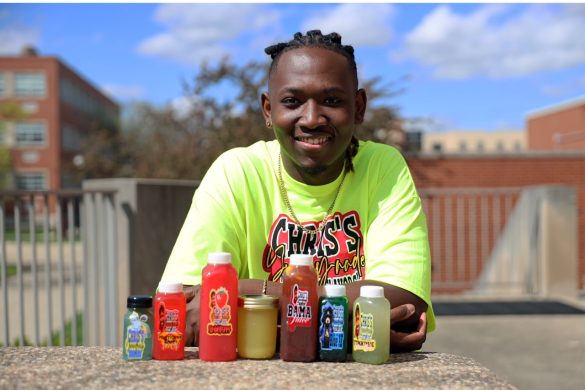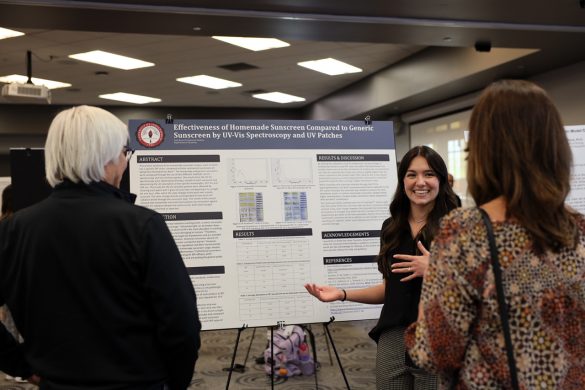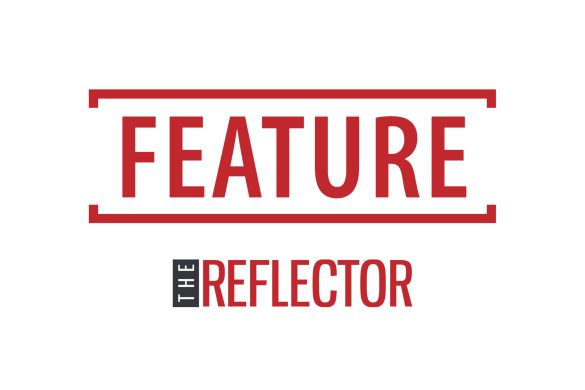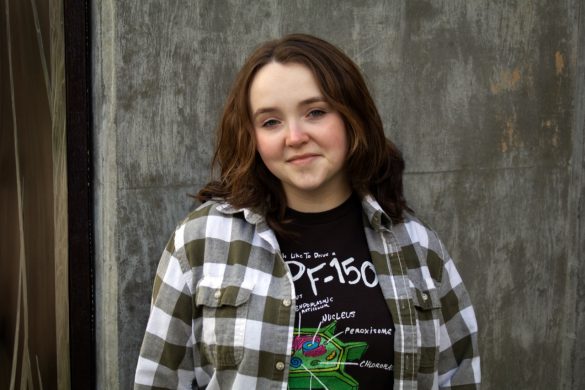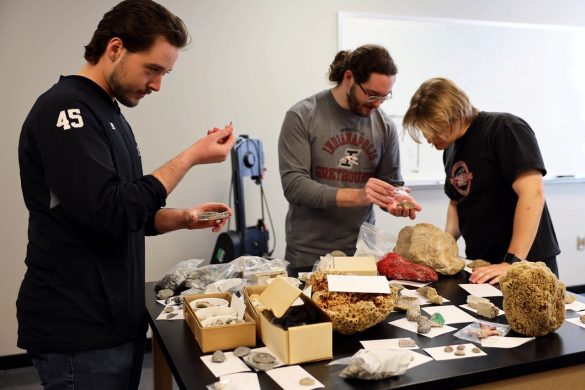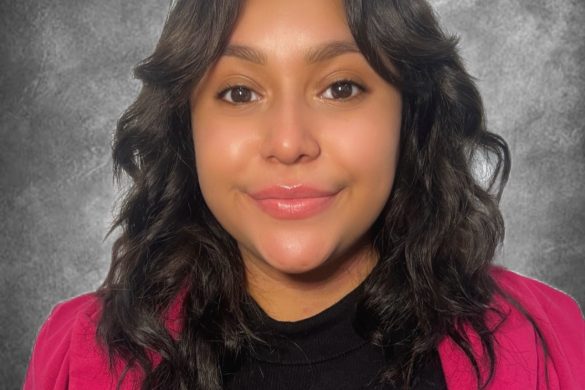Students will be hard at work on individual research projects this Spring Term as the Summer Research Institute program opens its doors for another year.
The Summer Research Institute, sponsored by the University of Indianapolis Shaheen College of Arts and Sciences, is a program that provides an opportunity for students and faculty mentors to collaborate on research projects during Spring Term, according to the Summer Research Institute’s website. Usually, the program welcomes students and faculty mentors from a variety of disciplines; however, due to changes in funding, the 2024 Summer Research Institute will be limited to those within the Shaheen College of Arts and Sciences. Associate Professor of Music and Director of the Music Technology Program Brett Leonard said this is his third year as the facilitator of the Summer Research Institute.
“The Summer Research Institute is a program that runs during Spring Term that allows students the opportunity to dive into some research with a faculty mentor, and it basically pays them like a full-time job so they can take time off work or don’t have to start a summer job or something like that, and be able to really spend, you know, 35-40 hours a week, specifically on their research project,” Leonard said.
Senior music therapy major Lauren Nielson was a part of the Summer Research Institute in 2023. She said she took the opportunity to work on her honors project about telling the difference between an amateur violin and a more expensive, professional violin.
“For my honors project, I varnished and finished a violin and I studied a whole
bunch of different aspects of the violin in that process,” Nielson said. “The one that we focused on in Summer Research Institute was the inherent resonance frequencies of a violin. … It was a really good opportunity to kind of set my honors project off on the right foot. It was also a great opportunity to connect with other peers who were doing research projects, some of them being honors projects. And some of them just being other projects that people were passionate about.”
Students receive a $1,500 stipend during the program, according to the program’s website. Faculty mentors receive $500 and must have availability every day to work with each student they mentor during the SRI. Due to funding concerns, the program has become more selective, according to Leonard.
“… This year was more selective than in the past,” Leonard said. “Previously, we were looking at about 65-70% acceptance rate, and this year, it was below 30, so quite a drop. But the process has been the same each year. I’ve been involved. We get faculty from, hopefully, a variety of different disciplines.”
According to Leonard, the program’s applicants can stand out by showing they understand how the three-week period of the program fits into their large research projects. Additionally, the program tries to select a variety of students, such as those from the hard sciences and humanities, Leonard said.
“The other thing that I think all of the review committee looks at is I think we all pay really close attention to—part of the project description is what are you going to do, how are you going to accomplish it and how is this going to help you in your future studies or career so if somebody says, ‘I’m going to medical school, and I’m studying the history of this class of drug that’s going to treat heart conditions,’” Leonard said. “Okay, that’s a really clear link to where you’re going and your future and other people will say, ‘I’m studying this because it seemed like fun.’ So you know, or they don’t say anything so that, a lot of times, can really make a project stand out that somebody says, ‘I know where I’m going, I know what I’m doing. And this is going to help you get there.’”
Nielson said the SRI is a funding opportunity for student researchers and that research can come with a lot of costs. Her experience at SRI working with Assistant Professor of Music Peter Nichols as her mentor was necessary, as Nichols had a lot of expertise in music recording and the sonic elements of music, according to Nielson.
“He and I connected because I work in the performance hall and he manages the performance hall on campus,” Nielson said, “Throughout the Summer Research Institute, it was really fun to kind of, you know, again, talk about passion and interest.”
Students looking to apply for next year’s Summer Research Institute program can look for updates on their website.
